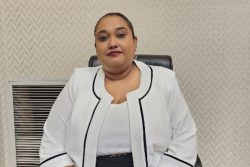CARACAS, (Reuters) – Venezuelan President Nicolas Maduro held a rare meeting with opponents yesterday, challenging them to collect signatures to oust him in 2016 if they wanted but to work with him in the meantime. Maduro invited opposition mayors and governors to Miraflores presidential palace in an attempt to draw a line after four bitterly-fought elections in Venezuela in little over a year.
“I’ve greeted you with sincere affection. I respect all your political positions,” said the 51-year-old former union activist, urging them to join government anti-poverty projects in the OPEC nation of 29 million people. “In the spirit of Christmas, we can turn over a new page,” he added. “Our differences will remain, but I urge you to work.”
Before the meeting, Maduro shook hands with high-profile opponents such as Caracas Mayor Antonio Ledezma, who he has repeatedly lampooned as a “vampire,” and Valencia Mayor Miguel Cocchiola, who he has called a “thief” and “criminal.” The president also offered them gifts of writings by Hugo Chavez, who died of cancer in March, and played a recording of the late president singing Venezuela’s national anthem.
And Maduro reminded his opponents of their constitutional right to seek a recall referendum half-way through his term should they collect the nearly 4 million signatures needed. “In 2016, you have the opportunity. If you want to get me out of the presidency, collect the signatures then,” he said.
Maduro won an April presidential vote to replace Chavez by just 1.5 percentage points. But his “Chavista” candidates took a bigger-than-expected 10 percentage points more votes than opposition rivals in local elections earlier this month.
That has given Maduro some political breathing space and may enable him to take some potentially unpopular measures such as a devaluation to manage Venezuela’s grave economic problems.
GRASSROOTS NEEDS
His opponents sat stone-faced through Maduro’s opening speech at the meeting, which was broadcast live on local TV.
The opposition’s main leader, Miranda state Governor Henrique Capriles, chose not to attend, saying he did not oppose dialogue but felt the government was imposing conditions. He complained about the government’s undermining of local authorities in opposition hands by creating parallel bodies. In various opposition-controlled areas, the government has named alternative “protectors” and bodies which receive state resources.





